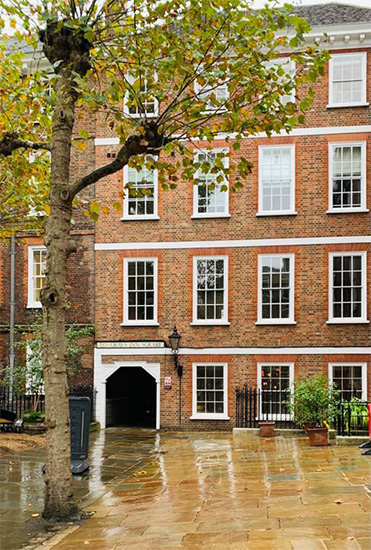Charles Edwin Edwards MSt(Cantab) MSc(Lond) FCInstCES Barrister
“If language is not correct, then what is said is not what is meant; if what is said is not what is meant, then what ought to be done remains undone…” Confucius
Charles Edwards, construction barrister and head of chambers at Gray’s Inn Construction Chambers, reviews the case of The Dorchester Group Ltd (t/a the Dorchester Collection) v Kier Construction Ltd [2015] EWHC 3051 (TCC). Offers to settle need to be carefully drafted and the interpretation of such Offers can and often do give rise to disputes concerning interpretation. The Dorchester Group Ltd (t/a the Dorchester Collection) (“the Employer”) made an application in the High Court seeking various declarations, accounts and determinations as to the amounts of undeclared discounts which Kier Construction Ltd (“the Contractor”), obtained from its mechanical and electrical sub-contractors, Mitie, but which contrary to the contract between the Employer and the Contractor, it did not disclose or pass on to the Employer. The Employer sought judgment on the basis of what it submitted was an –admission made by the Contractor in its solicitor’s open offer letter of 21 September 2015. By way of background, prior to these proceedings, there was an adjudication between the parties. The Adjudicator’s decision identified the sum of £686,290.93 as being the amount of undisclosed sum. The Court was advised that, that sum had been credited to the Employer, however, by way of these proceedings, the Employer sought to challenge that conclusion and the Employer’s pleaded case was that it was entitled to undisclosed amounts of:
“…(a) £766,236.00; (b) 15% of the cost of variations; (c) A further 3.75% by reference to an early payment discount..”
The Contractor’s defence was summarised as follows: “Dorchester’s Claims in relation the Undeclared Discount. 53. Kier admit that, as between Kier and Mitie, there was a discount of £686,575.00 which was not disclosed to Dorchester. Kier, however, deny that this discount amounted to a breach of their obligations under the Building Contract or of any other obligation owed by Kier to Dorchester:
“(1) Kier aver that Item A13/120 was not applicable and/or was waived, for the reasons set out above;
(2) Further, or alternatively, Kier deny that this discount amounted to a change to the terms, conditions, scope and price agreed with Dorchester sufficient to amount to a renegotiation of the work package. 54. Alternatively, for the purposes of these proceedings only, and subject to the matters set out above and below, Kier admit that Dorchester are entitled to the benefit of an “undeclared discount” in the sum of £431,639.00.
55. Kier, however, aver that they are, in any event, entitled to retain £254,936.00 of the discount of £686,575.00.
(1) This sum of £254,936.00 represented a discount granted by Mitie for early payment in advance of Kier’s Standard Terms of Payment of 60 days.
(2) Such a discount was not, in any event, in breach of the provisions of Item A13/120 if, which is denied, that item was applicable to Kier. The early payment discount did not amount to a renegotiation of the work package, but was a purely “domestic” matter as between Kier and their sub-contractor.
(3) Dorchester have, in any event, suffered no loss in relation to any breach of Item A13/120 if, which is denied, the same has occurred. Kier and Mitie have agreed, for their mutual benefit, an arrangement as to early payment. This was not in any way to the prejudice of Dorchester.
(4) In any event, Edge, on behalf of Dorchester, have agreed that Kier should retain any undeclared discounts which relate to the securing of discounts from sub-contractors for early payments. Full particulars of this averment are set out at paragraphs 14 to 20 of the witness statement of … (at Tab. 10 to the Particulars of Claim).
59. Paragraphs 67 to 70 inclusive are denied. It is averred that the maximum sum to which Dorchester is entitled (if any, which is denied) in relation to undeclared discounts is that of £431,639.00 as set out in the witness statement of…”
The Contractor, by a letter dated 21 September 2015 from it’s solicitor, made an open offer in respect of the proceedings. It is important to set this out as it is the basis of this open offer which the Employer sought judgment in the High Court on the basis that the statements contained in the open offer were admissions for which it was entitled to judgment. The open offer letter dated 21 September 2015 from the Contractor’s solicitor stated amongst other things that: “In full and final settlement of the Proceedings we set out herein Kier’s open offer and the terms that relate to it.
For the purposes of the Proceedings only, and without making any admissions of liability save as set out below, Kier accepts that TDC is entitled to the following declarations (by reference to the prayer to TDC’s Particulars of Claim):
(1) As to the declaratory relief sought at (1) Kier accepts (and has admitted in its Defence served on 5 March 2015) that TDC is entitled to the relief sought;
(2) As to the declaratory relief sought at (2) Kier accepts that TDC is entitled to such a declaration and that the amount of the undeclared discount obtained by Kier from Mitie amounts to the sum of £686,575.00;
(3) As to the declaratory relief sought at (3) Kier accepts (and has admitted in its Defence served on 5 March 2015) that TDC is entitled to a declaration that the value of the mechanical and electrical measured works and associated variations, including tunnel variations, is in the amount of £7,484,865.00. For the avoidance of doubt, this sum is composed as follows:
Measured Works £5,080,871.00
Mechanical Variations £791,753.00
Electrical Variations £1,048,421.00
Tunnel Variations £563,820.00
Total £7,484,865.00
The total of £7,484,865.00 is exclusive of VAT. The said total is also exclusive of loss and expense, which is not part of the Proceedings.
Finally, the said total is gross of the undeclared discount. Accordingly the net sum after deduction of the undeclared discount amounts to £6,798,290.60. Kier’s offer remains open for acceptance at any point until such time as Kier notifies TDC that Kier’s open offer is withdrawn.
Finally, please note that:
(1) This open offer is not an offer to pay a sum of money. As with the Proceedings, this offer simply concerns the declarations sought: there is no monetary claim comprised within the Proceedings.
(2) As to costs, in the event TDC chooses to accept Kier’s offer at any point it is a condition of Kier’s
offer that costs shall be in the discretion of the Court. There will be a number of matters upon which we wish to address the Court on the subject of costs.
(3) This offer is alternative to, and cannot be accepted in conjunction with, any other offer which Kier may have made in, or in connection with, the Proceedings.”
The Court noted that the amount offered was to all intents and purposes, the sum found by the Adjudicator in the adjudications proceedings. The Contractor submitted that this was deliberate because if this offer was accepted by Employer it would argue that the Employer had achieved nothing by way of the litigation and, as a consequence, would be seeking orders for costs in its favour, hence the reason the open offer did not make any offer in respect of costs, but left that matter to be decided by the court. The Employer’s solicitors responded accordingly on 23 September 2015 and stated amongst other things that:
“If we understand the Open Offer correctly, Kier now concedes: that it is liable to account to our client (the “Dorchester”) for the Undeclared Discounts which Kier obtained from Mitie; and that the quantum of the Undeclared Discounts is £686,575.
The term “Undeclared Discounts” is defined at paragraphs 63.1 to 63.7 of The Dorchester’s Particulars of Claim. Kier pleads to paragraph 63 of the Particulars of Claim at paragraphs 53 to 56 of its Amended Defence. Given the terms of those parts of the pleadings, we understand the concession made in your offer to mean that Kier concedes that it is liable to account to The Dorchester for any Undeclared Discount obtained from Mitie, howsoever obtained. In particular, we understand that Kier now concedes that it is liable to account for any discount granted by Mitie for early payment and all issues of waiver are no longer live.
If our understanding of Kier’s concession is mistaken then we ask you to tell us otherwise..,”
The Contractor’s solicitors responded on 30 September 2015 advising the Employer that there appears to be a misunderstanding, stating amongst other things that: “First and foremost there appears to be a misunderstanding on your part. In your second letter of 23 September you suggest that Kier has conceded that Kier is liable to account to TDC for the undeclared discount obtained from Mitie and that the quantum of the undeclared discount is £686,575.00. Our letter to you of 21 September 2015 does not make any such concession. Rather it constitutes an “open offer” which is available for acceptance by your client on the terms set out in the open offer. As stipulated in our clients open offer, the open offer remains open for acceptance at any point in time until such time as Kier notifies TDC that Kier’s open offer is withdrawn. In the event that your client does not accept our client’s open offer then the proceedings will proceed to trial. In that case the issues that remain between the parties and which will need to be addressed at trial remain those in issue between the parties by reference to the parties’ respective pleaded cases culminating in your client’s reply. We trust that the above clarification is sufficient for your purposes including your latest letter of 28 September 2015.”
During the proceedings, the Court was advised that the open offer of 21 September 2015 by the Contractor was not accepted by the Employer and that the offer had now been withdrawn. The Employer’s interpretation of the Contractor’s offer letter led the Employer to seek judgment on the basis that:
“Kier now concede that it is liable to account for any discount granted by Mitie for early payment and all issues of waiver are no longer live.”
The Court was unwilling to accept this submission for a number of reasons which included: “…
First, the letter of 21 September 2015 was an open offer. It contained a package of terms which Dorchester could either accept or reject. It would be contrary to the whole basis of an offer if Dorchester were permitted to accept what they say was a part of it (by claiming that it was an admission), whilst rejecting other elements of the same package…
Courts must always encourage parties to make offers, in whatever form is appropriate. That is in accordance with the overriding objective. It would be contrary to that policy if the recipient of an offer like this could pick over its terms, accept parts and reject others, and thereby ensure that the litigation continues. That is not the purpose of an offer of this sort…
Secondly, CPR 14.1 entitled “Admissions made after Commencement of Proceedings” is in these terms:
“Admissions made after commencement of proceedings 14.1
(1) A party may admit the truth of the whole or any part of another party’s case.
(2) The party may do this by giving notice in writing (such as in a statement of case or by letter). …
(4) Where the defendant makes an admission as mentioned in paragraph(3), the claimant has a right to enter judgment except where–
(a) the defendant is a child or protected party; or
(b) the claimant is a child or protected party and the admission is made under rule 14.5 or 14.7…
(5) The permission of the court is required to amend or withdraw an admission. (Rule 3.1(3) provides that the court may attach conditions when it makes an order).”
The Employer submitted that as a consequence of the Contractor’s open offer dated 21 September 2015, the Contractor had admitted that in its pleaded case, it could retain the discount for early payment to Mitie, which was wrong, and that it had admitted that it was liable to the Employer for all undisclosed discounts, including that one. As consequence, the Employer submitted that it was entitled to judgment pursuant to CPR r.14.1(4).
However, the Court noted that:
“… (a) The letter makes no reference to r.14.1; (b) The letter does not admit to the truth of …case that all undisclosed discounts are due. It simply “accepts” that proposition for the purposes of the offer; (c) The letter makes no reference at all to the defence based on the partial discount for early payment, and there is nothing on the face of the letter that amounts to an admission that in some way that partial defence was a bad one, and/or was no longer pursued…”.
The Court concluded that the open offer letter of 21 September 2015 was not a notice pursuant to CPR, r.14.1 and therefore was not a ‘formal admission’ of the type set out in CPR, r.14.1.1. The Court also made it clear that for judgment to be entered under CPR, r.14.1, the admission has to be clear and unequivocal, whereas in this matter, the Court found that the alleged admission about the discount for early payment to Mitie was neither clear nor equivocal, hence the reason Employer was seeking clarification from the Court and the Contractor’s explanation made it clear that there was no such admission. In these circumstances, the Court was of the view that it could not possibly be said that there was a clear admission in the Contractor’s offer letter. The Court noted the disjunct between the offer letter on the one hand and the Employer’s application on the other, which could be seen in the Employer’s proposed draft Order which stated:
“pursuant to CPR Rule 14.3, the defendant’s case that it is entitled to retain the benefit of any discount granted by Mitie for early payment (as set out in paragraph 55 of its defence) is dismissed.”
The Court noted that those words (in the proposed draft Order by the Employer) simply did not appear in the Contractor’s open offer letter of 21 September 2015 and furthermore, the order sought by the Employer made it clear that it was not seeking judgment on the basis an admission, but instead, a judgment based on a contentious construction of one paragraph of the open offer letter by the Contractor. The Court found that if the open letter contained an admission at all, it was an admission in the sum of £686,575.00 which was the complete opposite of the Employer’s case, because that amount had already been credited by the Contractor to the Employer’s account and therefore the last thing that the Contractor would want would be for the Court to give judgment on such a basis.
In summary, the Court rejected the Employer’s application for judgment and found amongst things that:
1) The Contractor’s statements in its open ‘offer’ letter dated 21 September 2015 did not constitute ‘admissions’ under CPR, r.14.1.
2) For judgment to be entered under CPR, r.14.1, the admission has to be clear and unequivocal, whereas in the present matter, the Court found that the alleged admission about the discount for early payment to Mitie was neither clear nor equivocal, hence the reason the Employer was seeking clarification from the Court.
3) There was a disjunct between the Contractor’s Offer letter on the one hand and the Employer’s application on the other, which could be seen from the proposed draft order as it referred to words which were simply not there in the Contractor’s offer letter.
4) The Employer was seeking judgment based on a contentious construction of one paragraph of the open offer letter by the Contractor which the Court rejected.
5) The Courts must always encourage parties to make offers, in whatever form is appropriate and that was in accordance with the overriding objective. However, it would be contrary to that policy if the recipient of an offer like this could pick over its terms, accept parts and reject others, and thereby ensure that the litigation continues.
The above is for general information only and to encourage discussion and does not constitute legal advice. The author does not assume any responsibility for the accuracy of any statements made and appropriate legal advice should be taken and relied upon before taking or omitting to take any action in respect of any specific matter. If the facts and matters referred to above are relevant to you or your organisation, then please do not hesitate to contact me in chambers to see how I can assist you or your organisation.
Charles Edwin Edwards MSt(Cantab) MSc(Lond) FCInstCES Barrister
(Head of Chambers)
Gray’s Inn Construction Chambers
344-354 Grays Inn Road
London
WC1X 8BP
E: [email protected]





